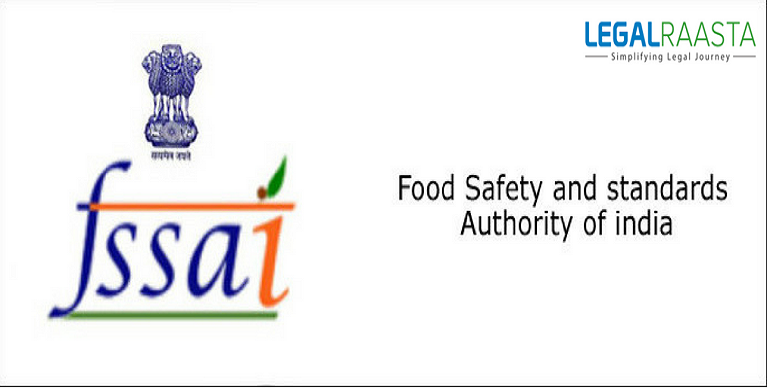FSSAI, short for Food Safety and Standards Authority of India, is an agency of Ministry of Health and Family Welfare of India. It is essential to have a body in government for regulation and supervision of food safety for protecting and promoting public health. Hence the government, in 2006, passed the Food Safety Standards Act under food safety and standard Act, 2006. FSSAI is responsible for formulating the food safety and standard regulation that came into effect in 2011. FSSAI formulates rules & regulations and handles food related issues in various Ministries and Departments.
Functions of FSSAI
- Frames regulations to lay down the standards and guidelines for articles of food and to specify an appropriate system to enforce those standards.
- Lays down the structure and guidelines for accreditation of certification bodies which in turn certify food safety management systems for food businesses.
- Lays down the procedure for accreditation of food testing labs and notifies accredited labs.
- Provides scientific advice and technical support to Central and State Governments in policy matters having a direct or indirect effect on food safety and nutrition.
- Collection and collating of food consumption data, incidence, and prevalence of biological risks, food contaminants, a residue of various contaminants in food products, identifying emerging risks introducing the rapid alert system.
- Creating a national information network to provide quick, clear, reliable and objective information about food safety and issues of concern to the public, consumers, Panchayats etc.
- Providing training to persons involved or intending to get involved in a food business.
- Contributing to the development of International food, sanitary and phytosanitary standards.
- Promoting general awareness of food safety and standards.
FSSAI grants License and Registrations for all the business firms dealing in any kind of business related to food. It examines the applicant’s application and grants the license only after it feels satisfied by the application. Be it manufacturing or distributing or selling food items, FSSAI registration is mandatory. New FBOs can start their business operations once permitted from the concerned authorities.
Canteen, restaurants, hotels, bakeries, dairy, the manufacturer of consumable products etc every such business unit requires FSSAI registration. Such businesses are called Food Business Operators (FBOs). Owning an FSSAI license also benefits the owner. It helps to build customer’s trust over the products.
Registration Process
- Fill Form B: Food business operators can apply for new license or renew an existing one by applying to Form B. Self attested declaration in the specified format should be attached to the form
- After Receiving the application, the authorities examine the application and carry out food inspection
- If the Inspector is satisfied with your business operations, he/she will forward the report and the license will be issued by the concerned authority. This may take up to 60 days
Important Points
- Consequently, if it takes more than 60 days, the applicant can commence without the license without waiting for further communication.
- To protect and improve the quality and hygiene of food, tremendous changes have been brought by the Food Safety & Standards Act,2006. As per the act, it is mandatory to obtain an FSSAI Registration/license for a person to commence a food business.
- Thus FSSAI license is required for all activities relating to the manufacture, process, storage, packaging, and distribution of food.
Establishment of the Authority
FSSAI is governed by the Ministry of Health & Family Welfare, Government of India. Food Safety and Standards Authority of India (FSSAI) is headed by a Chief Executive Officer and a Chairperson who has already been appointed by Government of India. The Chairperson holds the rank of Secretary to Government of India.
FSSAI License Renewal
FSSAI License is a mandatory legal compliance for any kind of business related to food. Whether it’s manufacturing of food items, or distributor, or seller. Such kind of business is called Food Business Operator (FBO).
Getting FSSAI License is not a one-time compliance. The validity of FSSAI License depends on how long you have applied for. The cost of license increases with the no. of years you get FSSAI license for. FSSAI license can have a validity of maximum 5 years. You need to apply for FSSAI license again before the existing license gets expired. According To FSSAI’s guidelines, it is mandatory to Minimum 30 days before your license gets expired. If you delay in application, you will be charged a Penalty of Rs 100 per day.
Failing to renew the FSSAI Renewal License can make the authorities sue you. They can also put your firm on hold. So to avoid penalties, you should renew your food license on time.
Procedure for renewal of FSSAI License
FSSAI License is renewed by Form B or Form A (based on your eligibility) and the procedure takes place in the following manner:
Step1. The first step is to fill Form B.
All your required information is filled up in the Form-A self-attested declaration is attached along with the form in the specified format declaring that you conform to the Food Safety and Standards Act,
A self-attested declaration is attached along with the form in the specified format declaring that you conform to the Food Safety and Standards Act,
Step 2. Once the authority receives your application, it examines your application and if everything is on point, they arrange an inspection to your working area.
Step 3. Once the FSSAI officer finishes the inspection and is satisfied with your work, he or she passes your application along with his report.
Step 4. It takes 60 days for the authority to issue the FSSAI license. If it takes more than 60 days and you have not got any notice from the authority you can continue the business without waiting for further communication

